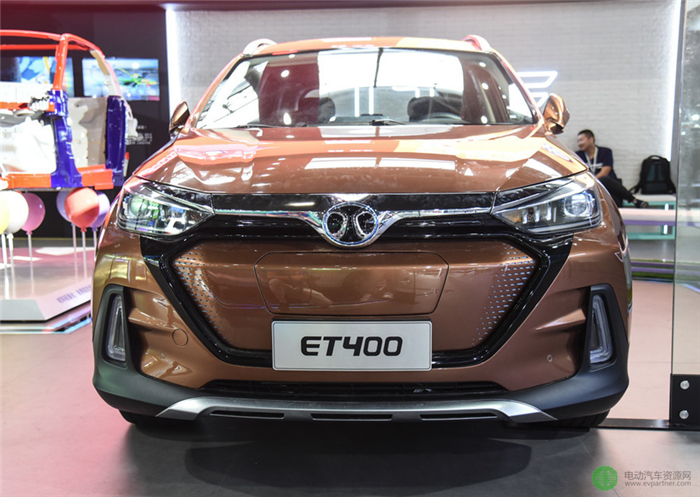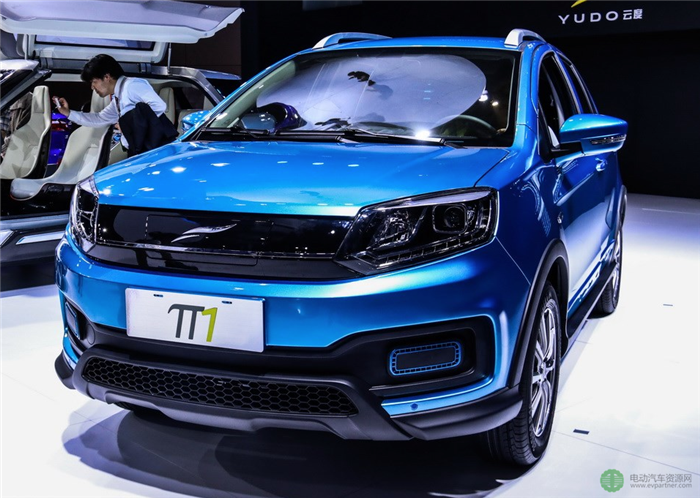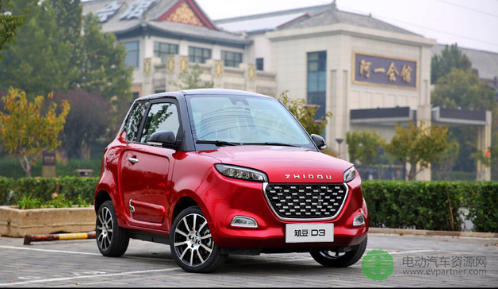On December 4, the Ministry of Industry and Information Technology released the "Recommended Vehicle Catalogue for Promotion and Application of New Energy Vehicles (11th Batch in 2017)", which includes a total of 165 models of 79 companies. In addition, the Ministry of Industry and Information Technology also announced that it agreed to establish a pure electric passenger car manufacturer, the Hangzhou Changjiang Passenger Vehicle Co., Ltd. in the “Announcementâ€, which means that Changjiang Automobile has obtained the qualification for the construction of a new pure electric passenger vehicle. In addition, companies such as BAIC New Energy, Yundu New Energy, Jiangling New Energy, and Zhidou, which have been audited by the Ministry of Industry and Information Technology, are the fifth company in the Yangtze River EV. Perhaps many small partners are in doubt. On November 16, the Ministry of Industry and Information Technology did not announce the Yangtze River EV? Why did you announce again in early December? At the same time, 15 enterprises have been approved by the National Development and Reform Commission. Why do they still need the Ministry of Industry and Information Technology's announcement? In the spirit of spreading truth, telling the truth, and making true friends, Qingqing chats with everyone about the "double certificates" of new energy electric vehicles and the small partners who have already obtained double certificates. Let's take a look at "Double Certificates" (my understanding is that the National Development and Reform Commission is an entry permit, and the Ministry of Industry and Information Technology is a prospective student; in fact there is a 3C behind it). Development and Reform Commission: This is the first stage of qualification acquisition. The National Development and Reform Commission controls the approval of pure electric vehicle passenger vehicles. The corresponding management policy is the “Regulations for the Management of Newly-built Pure Electric Passenger Carsâ€. Only those who meet this requirement can be registered. . Newly built companies must submit warranty commitments for the core components such as batteries, motors, and electronic control systems for passenger cars. The pure electric vehicle products newly built into the “Vehicle Production Enterprises and Products Bulletin†are valid for 3 years, and applications for extension can be submitted 30 days before the expiry of the valid period. The validity period can be prolonged after the review has passed, and each extension will not exceed 3 years. Ministry of Industry and Information Technology: This is the second level of qualification acquisition, which is inspected by the Industry and Information Technology Corporation, which is the entry of the enterprise and the product, that is, the enterprise has passed the project acceptance and the vehicle product has passed the testing agency's inspection. The corresponding management policy is “New Energy Vehicle Manufacturing Enterprise and Product Access. Management Regulations. At this stage, it is more dependent on the true strength of the company's products. Only the products that meet the requirements of the various indicators can be released through the audit. It is well known that the Ministry of Industry and Information Technology has strict regulations on the issuance of license plates for the production of pure electric vehicles, and it has a complete investigation system for the company's profile, basic capabilities, demonstration prototypes, and certification materials. In terms of technical requirements for trial prototypes, there are stringent requirements for the safety and reliability of vehicles. At present, 15 new energy vehicle companies have received approval from the National Development and Reform Commission, but only five have been audited by the Ministry of Industry and Information Technology. In simple terms, the NDRC is in charge of doing its job. The Ministry of Industry and Information Technology is responsible for doing a good job. Here are the new forces of the new energy vehicles that we have inventoried and inspected. We pay tribute to these people who are running new energy vehicles. ! ! Beiqi New Energy (Development and Reform Commission: 2016.03.16; Ministry of Industry and Information Technology: 2016.05.06) Planned production capacity: 70,000 pure electric passenger cars, of which new output: 50,000 pure electric passenger car production capacity. Electric Vehicle Sales in 2016: Accumulated sales for 2016 were 51,559 units, a year-on-year increase of 156%. 2017 plan: There will be more than 5 new models on the market, which will challenge 170,000 sales targets. The new model ET400 from Beijing Auto New Energy was officially unveiled at the 2017 Guangzhou Auto Show. The new car is based on the EX400L concept car debuted at the 2017 Shanghai Auto Show and is expected to be listed before and after the Beijing Auto Show next year. Similarly, in June 2017, Daimler intends to strategically invest in Beijing New Energy Automobile Co., Ltd., a subsidiary of BAIC Group, to strengthen the cooperation between the two sides in the field of new energy vehicles. In the current five companies, the comprehensive strength is relatively strong. Yundu New Energy (Development and Reform Commission: 2017.01.25; Ministry of Industry and Information Technology: 2017.6.15) On August 29th, Yundu New Energy's first pure electric SUV, the Yundu Ï€1, was formally rolled out at the assembly plant at Yundu Plant, signing about 220,000 vehicles on the offline site and officially launching on October 10. In 2020, Yundu New Energy SUV plans to sell 100,000 vehicles. Yundu is backed by Fuqi and seized double certificates within a short period of time. Its strength should not be underestimated. Jiangling New Energy (Development and Reform Commission: 2016.12.25; Ministry of Industry and Information Technology 2017.9.30) Planned production capacity: 50,000 pure electric passenger cars. At present, there are four new energy models, E100, E200, E200S, and E160. The first sedan E160 has been on the market. Jiangling will also introduce five plug-in hybrid and pure electric vehicles: the Yusheng S330 pure electric version, the S330 plug-in hybrid version, the E400 SUV, the E300 sedan and the departure series. In the future, three complete vehicle platforms will be built: more than 20 products from 4 major lines; adaptive cruising and automatic parking assistance will also be developed in 2018; its core battery pack will be Shanghai Carnex, which will be jointly built. The power battery production line has been put into production. As its long-term partner, Ford is derailed in playing new energy and deserves further attention. Know Bean Electric Vehicle (Development and Reform Commission: 2017.03.01; Ministry of Industry and Information Technology: 2017.10.16) Since its inception, Zhidou has conquered countless consumers with its advantages of environmental protection, intelligence, and energy saving. Over the past few years, it has won the favor of many consumers with its precise market positioning and excellent quality, and has become a core representative of the micro energy field of new energy vehicles. As of October 2017, Zhidou has sold more than 100,000 units, and its overseas performance is equally impressive. So far, Zhidou has been marketing Italy, France, Germany, the Czech Republic, Brazil, the United Kingdom, Slovakia, Slovenia, Bulgaria, Romania, Azerbaijan, Austria, the Netherlands, Colombia, Poland, Belgium, Macedonia, South Korea and other global 18 countries, products throughout dozens of cities in Europe, America and Asia, Zhidou become China's new energy automotive industry micro-line in the international market, one of the benchmarks. It is confirmed that there are "beans" on the color! Changjiang Automobile (Development and Reform Commission: 2016.05.17; Ministry of Industry and Information Technology: 2017.11.16 (public notice); 2017.12.04 (confirmed after the end of public notice)) Established in 2013 (by the Hong Kong Wulong Electric Vehicle Group, the capital of Hangzhou Yangtze River was re-owned as Changjiang Automobile Co., Ltd.); on April 17, 2016, Changjiang Automobile Group officially released the electric vehicle brand “Yangtze River EVâ€. Project investment: RMB 80,900,000 (Enterprise self-raised 267 million yuan, bank loan 533,900,000 yuan); Planned production capacity: 50,000 pure electric passenger cars. Existing models: In 2016, the pure-electric compact SUV "Yikuo" participated in the Beijing auto show, but the time to market has been delayed for one year and it is still not listed. Industrial chain integration advantages: Production bases: Hangzhou, Kunming, Guizhou (domestic), United States (overseas); R&D centers: Beijing, Shanghai; Battery production bases: Tianjin, Liaoning (Power Battery Company is SINO, but current batteries and batteries Bao Ren from the other home as the main supplier); battery material production base: Chongqing; a car Internet technology company - car collar technology company. With the aura of former Chinese richest person and the summit of Hangzhou G20, Changjiang Automobile should have a larger layout and pattern to develop. Judging from the announcement time of the Ministry of Industry and Information Technology of the Yangtze River EV, the announcement time was 15-30 days. It was basically a car company that had announced it and had not prepared for approval. This is more like cadres publicity? For a car manufacturer with qualification for traditional fuel vehicles, if a new energy vehicle does not actually need to reapply for new energy production qualification (NDRC), the new car can be announced by the Ministry of Industry and Information Technology; of course, unless the new energy vehicle segment is to be re-operated Such as Beijing Automobile New Energy and Chery New Energy. And in 2017, the NDRC no longer issued the qualification for traditional fuel vehicle production, and there seems to be a limit to the expansion of traditional fuel vehicle capacity projects. Therefore, this type of production qualification is also a scarce resource. As “double points†will be implemented on April 1, 2018, the traditional car companies are also accelerating their shift to the new energy camp; at the same time, the door of the new energy automobile market “barbarians†or capital Players are still very eager for this type of qualifications, such as Miss Dong's "buy, buy, buy, buy, buy, buy, buy, buy, buy, buy, buy, buy, buy, buy, buy, buy, buy, buy, buy, buy, buy, buy"; However, it should be pointed out that after obtaining the double approval from the National Development and Reform Commission and the Ministry of Industry and Information Technology, it does not mean that new energy auto companies have won the "iron rice bowl." According to the “Regulations on the Management of Newly-built Pure Electric Passenger Carsâ€, the pure electric passenger car products newly built into the “Vehicle Production Enterprises and Products Bulletin†are valid for 3 years, and will be reviewed again after the expiration date. In addition, in May this year, the CNCA issued an announcement on adjusting the standards for mandatory certification of automotive products, and included new energy vehicles in the CCC certification. This will be the third level for new energy vehicle companies. Briefly introduce 3C, CCC certification is "China Compulsory Certification", the English name is "ChinaCompulsoryCertification", abbreviated as CCC. The CCC certification enforces national mandatory safety certifications on the products involved. In December 2001, the General Administration of Quality Supervision, Inspection and Quarantine of the People's Republic of China (AQSIQ) issued the “Management Regulations for Compulsory Product Certification†to replace the original safety product licensing system for imported goods and the safety certification system for electric products with a mandatory product certification system. China's mandatory product certification referred to as CCC certification or 3C certification. It is a statutory mandatory safety certification system, and it is also a basic practice widely adopted in the world to protect consumer rights and interests and to safeguard the safety of consumers' personal and property. The products included in the Catalogue for Compulsory Product Certification include household appliances, automobiles, safety glass, medical devices, wire and cable, toys, etc. Among them, CQC is designated to undertake 18 categories of 146 products within the scope of the CCC catalogue. 3C certification work. Through the above, the car is impressively listed. I think the new energy car should be no exception. It is just how to do it. Now there is no clear gameplay. Ha, it's not just a 100-meter sprint, but a marathon. It's just the beginning of the story... Rectangle Carbide Insert ,Carbide Milling Inserts,Carbide Tool Inserts,Sharpening Carbide Inserts SICHUAN TELOS NEW MATERIAL TECHNOLOGY CO., LTD , https://www.sichuankenlarcutters.com
![]()

![]()
